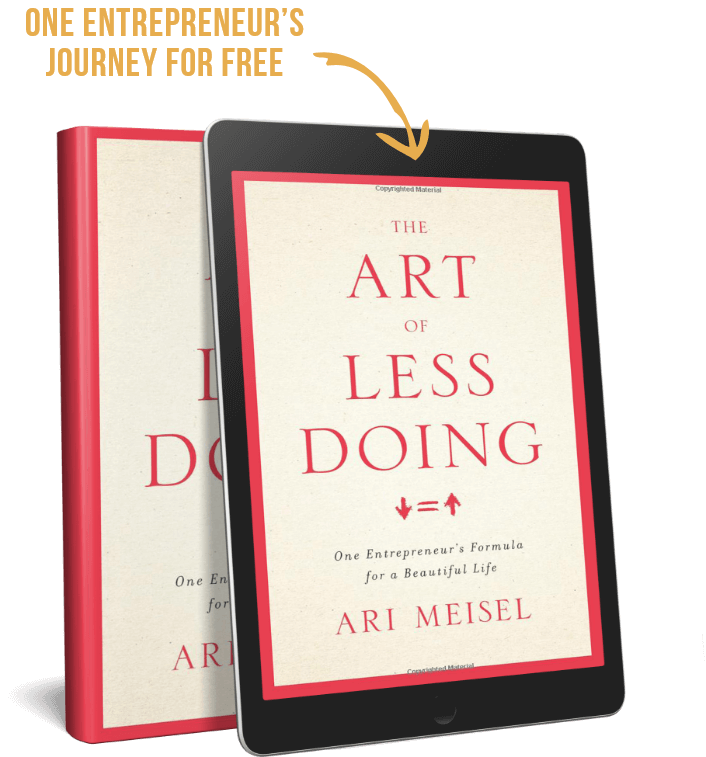I had the most delightful feeling the other day.
I was bored.
Absolutely everything was in its place. The kids were at school. The dog was walked. My wife was deep into her yoga practice and everything about my work was being handled by someone else.
I had nothing to do.
I have to admit, I panicked, but then I realized how blissed I felt before I realized I was bored and I went right back to it, doing nothing at all. Best few hours I’ve had in a long time.
But because I’m me, I wanted to research this idea of boredom. Was it as beneficial as I found it? Was there science to back it up?
Here’s what I found…
One recent study found that boredom, when paired with curiosity, is associated with a greater capacity for learning. Another study found that boredom correlates with a greater sense of awareness, both of the external world and the internal workings of one’s mind. Lots of folks have been writing online lately that boredom actually stimulates creativity and valuable self-reflection.
THE VALUE OF BOREDOM
“Boredom-driven curious learning by Homeo-Heterostatic Value Gradients.” That’s a freakin’ mouthful, but really cool stuff to mull over in this study from Japanese researcher, Yen Yu.
“A key insight from our algorithm is that the two seemingly opposite motivations can be reconciled — without which exploration and information-gathering cannot be effectively carried out. We supported this claim with empirical evidence, showing that boredom-enabled agents consistently outperformed other curious or explorative agent variants in model building benchmarks based on self-assisted experience accumulation.”
This study used “the Homeo-Heterostatic Value Gradients (HHVG) algorithm as a formal account on the constructive interplay between boredom and curiosity.” Ultimately, the researchers found that people who were both bored and curious “consistently outperformed other curious agents in self-assisted world model learning,” suggesting that boredom may be an important factor in driving learning and comprehension.
“A Meditation on Boredom: Reappraising its Value Through Introspective Phenomenology” from Dr. Tim Lomas, University of East London, School of Psychology, was beyond illuminating.
- “Boredom is almost universally regarded as a dysphoric mental state, characterised by features such as disengagement and low arousal. However, in certain quarters (e.g., Zen Buddhism), boredom is seen as potentially having great value and even importance.”
This study used introspective phenomenology to determine the effects of boredom on study participants. It found that “the state of boredom contained three main sources of value: (a) altered perception of time; (b) awakened curiosity about the environment; and © exploration of self.” As a result, the study’s authors note that boredom may, contrary to popular belief, have “the potential to be a positive and rewarding experience.”
I loved this article by Derek Beres, “Why the Feeling of Boredom Is So Important in Life.”
“The cultivation of imagination relies on boredom. We need moments of space, of absence, to free up the overwhelming deluge of information assaulting our nervous system every moment of every day. When any opportunity becomes a chance to like and connect and delete — sipping coffee, at a red light, in line — we lose the value of boredom. Over time that loss will prove to be one of the most valuable skills we have forgotten.”
It argues that boredom is an essential element of creativity. The author says that “the cultivation of imagination relies on boredom” and that “we need moments of space, of absence, to free up the overwhelming deluge of information assaulting our nervous system every moment of every day.”
And of course, it’s always great to have your theories proven. Teresa Belton’s“Why Boredom Can be Good for You” was just the stuff I needed.
“While boredom signifies a lack of stimulus, gaps and pauses in engagement are potentially of great personal value. People who fully appreciate this are the those who say they never get bored: they are always able to find something that interests them to think about or do, or can find contentment in simply being. In business parlance, time is money, but time has its own intrinsic value. We need to learn to appreciate and enjoy raw time as a precious resource.”
This piece argues that boredom is necessary for valuable introspection and self-reflection. The author claims that when bored, “we can revisit past experiences, enjoy them afresh, maybe see them in a different light and gain new understanding, or rethink future plans.” She also thinks that “we must learn to appreciate and enjoy raw time as a precious resource,” something that is only possible through boredom and the subsequent processes of introspection that she describes.
My advice to you?
Be Boring. It will make you more interesting.




